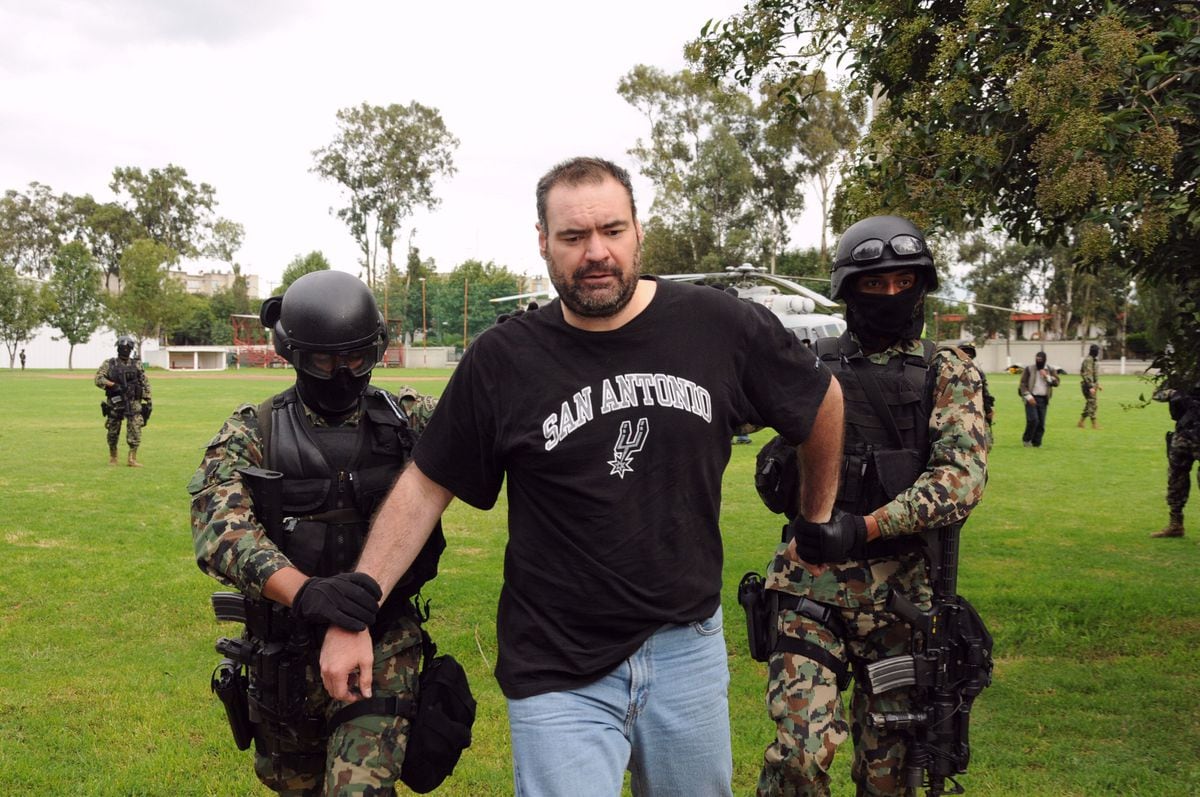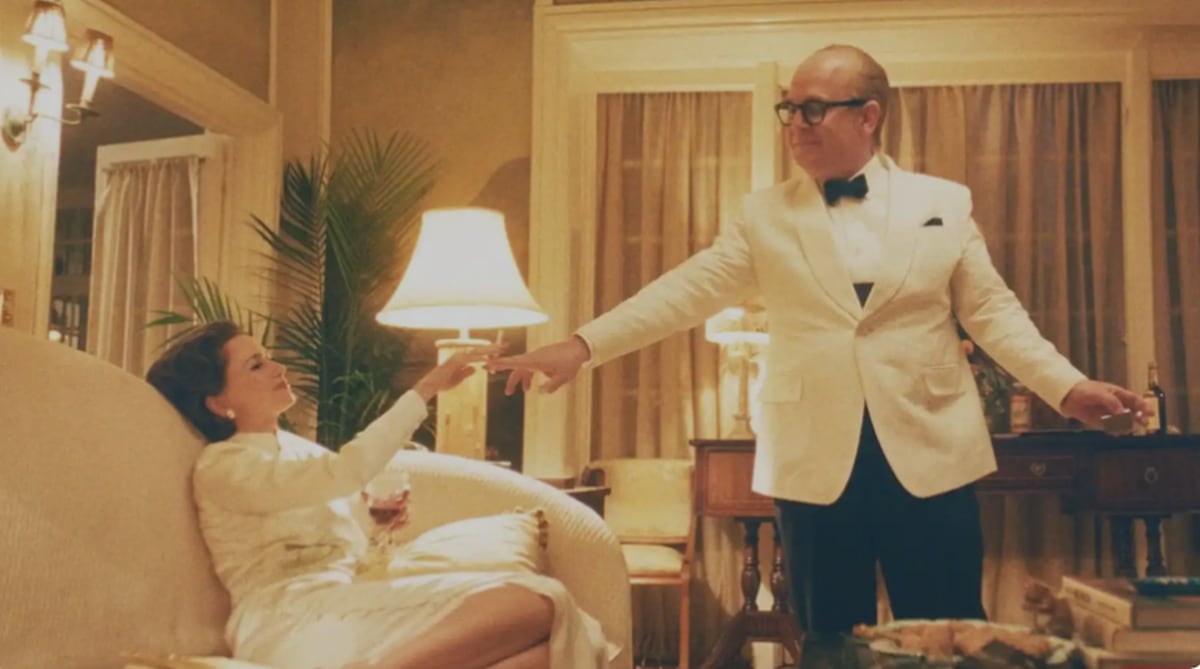Elements of the Navy detain Sergio Villareal Barragán, alias 'El Grande', on September 12, 2010, in Puebla. Cuartoscuro
There is no story in the criminal world that can resist Sergio Villarreal, alias El Grande.
Former member of the Beltrán Leyva cartel, leader of drug traffickers, Villarreal, who this Monday and Tuesday has testified against Genaro García Luna in New York, has appeared as a witness in a good handful of processes since his arrest in Mexico, in 2010, and his subsequent extradition to the United States.
What was said in a Brooklyn court against the police chief of former President Felipe Calderón (2006-2012) is just a small sample of the artillery fire that he has fired over the years.
In statements made to authorities in the last two six-year terms, El Grande has singled out generals, police officers, and prosecutors.
Villarreal has even participated in one of the legs of the investigation into the
Ayotzinapa case
, focused on the Abarca Pineda couple, who supposedly directed the crime in Iguala, at the time of the attack on the normalista students.
Abundance is not synonymous here with probity, at least judging by the result.
Many of the cases in which El Grande testified ended up being thrown out.
Many of the top officials he targeted went free.
El Grande debuted as a witness pointing to the authorities of Morelos.
It was the last years of Calderón's six-year term, the Navy had killed in Cuernavaca, the state capital, its boss, Arturo Beltrán Leyva, leader of a criminal clan that was waging a war with Sinaloa's old allies.
Villarreal fell in Puebla in September 2010 and a few months later he had already promised to collaborate with the extinct Attorney General's Office (PGR).
His first target was the police chief of the State of Morelos, Luis Ángel Cabeza de Vaca.
According to El Grande's statement, Cabeza de Vaca collaborated for years with the Beltrán Leyva.
Villarreal even said that Cabeza de Vaca even provided him with a helicopter to flee, in 2008, from an operation by federal authorities.
Accused by other witnesses, Cabeza de Vaca was arrested and even sentenced.
A judge sentenced him to 10 years in prison for an organized crime offence.
At that time, the Calderón government was immersed in Operation Cleanup, a crusade against the protection networks of authorities at all levels for the Sinaloa Cartel and its old allies, in this case the Beltrán Leyva.
Inaugurated with the famous
Michoacanazo
, the arrest in 2008 of some thirty public officials and senior officials of that State, the operation continued, with arrests at all levels, already at the federal level, often with El Grande involved.
The second batch of apprehensions of the operation - and surely the most relevant - was against senior Army officials.
Based on statements by criminals turned protected witnesses, including El Grande, the PGR tied the knot with four generals, including Tomás Ángeles Dauahare, who had reached the highest rank in the Army, a major general, and had served as undersecretary of National Defense during Calderón's first two years.
El Grande accused Dauahare of meeting with leaders of the Sinaloa Cartel and with Arturo Beltrán Leyva in Mexico City.
Sketch of 'El Grande', during the trial against García Luna, on January 23, 2023, in New York.
JANE ROSENBERG (REUTERS)
In between, El Grande and other bosses of the old Pacific criminal alliance pointed to a good handful of PGR agents, members of the Federal Investigation Agency (AFI), which García Luna had commanded until Calderón's arrival in government, and the Specialized Investigation Office for Organized Crime (SIEDO).
These were the cases, for example, of Francisco Gómez Meza and Roberto Sánchez Alpizar, assigned to the first, or Noé Ramírez, Miguel Colorado and Jorge Alberto Zavala, officials of the second.
The accusations of El Grande in the framework of Operation Cleanup share something: many came to nothing.
The investigation against the generals did not even go to trial.
In the case of the others, although some ended in trials and convictions, the courts ended up exonerating the defendants.
In some cases, the courts detained some of those implicated in cases tangential to Operation Cleanup.
In any case, the use of protected witnesses by the PGR, collaborating criminals like El Grande in many cases, generated such controversy that the operation ended up being ousted.
Pineda and Abarca
Mexico extradited El Grande to the United States in May 2012. The justice of that country accused the drug trafficker of drug trafficking, criminal association and money laundering.
Villarreal was confined in a prison in Texas.
Years later, in 2014, already during the government of Enrique Peña Nieto (2012-2018), the PGR returned to look for him with a very different purpose:
the Ayotzinapa case
.
In September 2014, a network of criminals and police from the central region of the State of Guerrero attacked a group of students from the Ayotzinapa rural normal school in Iguala.
Six people died, including three students.
43 normal school students disappeared during the attack.
The scandal forced the government to turn around, which was quick to point to the mayor of Iguala, José Luis Abarca, and his wife, María de los Ángeles Pineda Villa, as the minds behind the attack.
The PGR met with El Grande in his Texas prison in December of that year.
El Grande then explained that since the beginning of the century he knew, because Arturo Beltrán had told him, that the Pineda Villas were the people "who drove the boats in Guerrero to receive and introduce cocaine into national territory," a scheme led by one of the brothers of María de los Ángeles, Mario.
“The Pineda Villas could locate the Navy positions with a computer.”
In a multi-page statement, of which EL PAÍS has a copy, Villarreal evokes several occasions when he would have met with the Pineda Villa brothers, almost always in Cuernavaca.
In those meetings, El Grande points out that Mario used to put boxes full of dollars in cash in María de los Ángeles' vehicle.
This time, thanks to the testimony of El Grande among others, the PGR accused Pineda Villa of organized crime and money laundering, for being part of the criminal network in the region.
His testimony helped investigators reinforce the link between Pineda Villa, his brothers and Abarca, on the one hand, and the criminal group Guerreros Unidos, heirs in the Beltrán Leyva area, who carried out the disappearance of the students in Iguala and surroundings. .
subscribe here
to the EL PAÍS México
newsletter
and receive all the key information on current affairs in this country


/cloudfront-eu-central-1.images.arcpublishing.com/prisa/SDTMPFPAFVH3RFLOVOYNWMW4VU.jpg)




/cloudfront-eu-central-1.images.arcpublishing.com/prisa/QE5CHA6B7NGMBHBPEHCPSXLSAU.jpg)